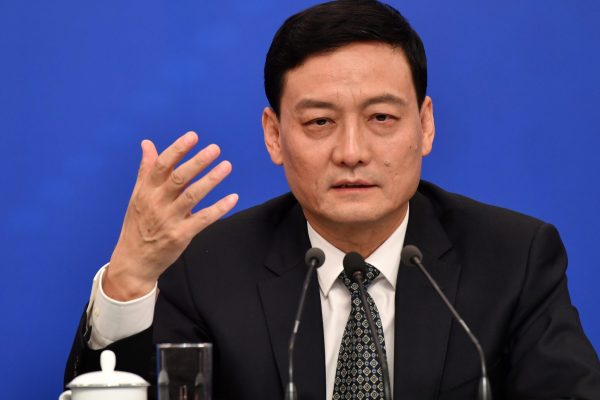This has provoked discussions on the need for revamping the rules of the WTO, which is now a central issue in the ongoing US–China trade war and subsequent negotiations.
As an integral element of China’s economic reforms launched in 1979, SOE reform has come a long way. While many SOEs were on the brink of bankruptcy at the beginning of the reform period, in the years since they have become bigger, stronger and more profitable. Many SOEs are now leading players in key sectors and rank highly not only domestically, but also in the international league tables.
Before the current round of reform began in 2013, a number of achievements were made in previous periods of reform. First, operational autonomy was granted to SOEs from 1979–1986, followed by delegation of authority to managers from 1987–1992. SOE privatisation, corporatisation and modernisation occurred from 1993–2002. The establishment of the State-owned Assets Supervision and Administration Commission (SASAC) in 2003 preserved and expanded state assets and spurred the selection of ‘national champions’ out of the large pool of SOEs, especially in strategic sectors.
By early 2013, both the number and market share of SOEs had shrunk while the private sector had grown at a phenomenal pace. At the same time, however, the national champions became more significant and influential in the economy.
The current round of reform since 2013 appears to be designed with competing objectives in mind:
On the one hand, Chinese leaders made commitments to deepen SOE reform through a host of measures, including better classification of SOEs, further improvement of corporate management and governance, ownership diversification, restructuring and reorganisation. These measures aimed at further integrating SOEs into a competitive market, with only a limited number of them serving government or public functions.
On the other hand, the restructuring and reorganisation boosted the power of many SOEs, which are among some of the world’s largest companies. The mixed ownership reform has been implemented in a way that promotes state capital investment in those private entities in strategic industries, through the backing of giant SOEs emerging from the restructuring and reorganisation. Moreover, the corporate governance reform significantly strengthened the role of the Party in SOEs through the creation of Party committees with major decision-making power in the boards.
This is a reform program heading in a direction that strengthens rather than weakens state capitalism.
Tighter control of SOEs by the Party-state is not necessarily problematic, at least not under the rules of the WTO. However, combined with other factors, such control could and often does result in anti-competitive effects, as SOEs may not behave like private firms but pursue political or public policy goals as directed by the Party-state.
These problems are further exacerbated by China’s unique economic model which treats SOEs as the primary economic agents of the state and the main instrument for implementing industrial and other national policies. Frequently, large SOEs that are already market leaders individually are merged by the state to create behemoth national champions, creating acute antitrust concerns. While China’s Anti-Monopoly Law is supposed to be administered equally between SOEs and private firms, more favourable standards are applied to SOEs, which often receive unconditional clearance by the merger review agency. For example, when assessing the concentration of SOEs, national interests and national industrial policies are also considered, allowing for more leniency in merger reviews.
While SOE mergers are often motivated in the national interest rather than the desire for market dominance, other firms in the same sectors often become collateral damage in such ambitious campaigns and the consequences are well documented. They also raise difficult problems for foreign competition authorities, which have to grapple with issues such as whether Chinese SOEs should be treated as a single entity controlled by the Party-state. In addition to competitive concerns, SOEs also pose mounting challenges to the international trading system, as they may undermine the conditions of competition that the WTO is designed to maintain.
It remains debatable as to whether the existing WTO rules are adequate to tackle China’s state capitalism. Therefore, in its own interest, it would be worthwhile for China to engage in the ongoing discussions of WTO reform and to consider joining existing trade deals, such as the Comprehensive and Progressive Agreement for Trans-Pacific Partnership (CPTPP), which contain detailed rules on SOEs. Indeed, when China sought membership in the WTO two decades ago the Chinese leadership wisely used WTO accession to garner support and impetus for domestic economic reform.
China’s economic reform has reached such a crossroads again and external stimulus like clearer international rules on SOEs might be exactly what it needs to abate the resurrection of state capitalism.
Weihuan Zhou is Senior Lecturer and Member of the Herbert Smith Freehills China International Business and Economic Law (CIBEL) Centre, the Faculty of Law, the University of New South Wales (UNSW).
Henry Gao is Associate Professor at the School of Law, Singapore Management University (SMU).
Xue Bai is a PhD researcher at the Faculty of Law, the University of New South Wales (UNSW).

